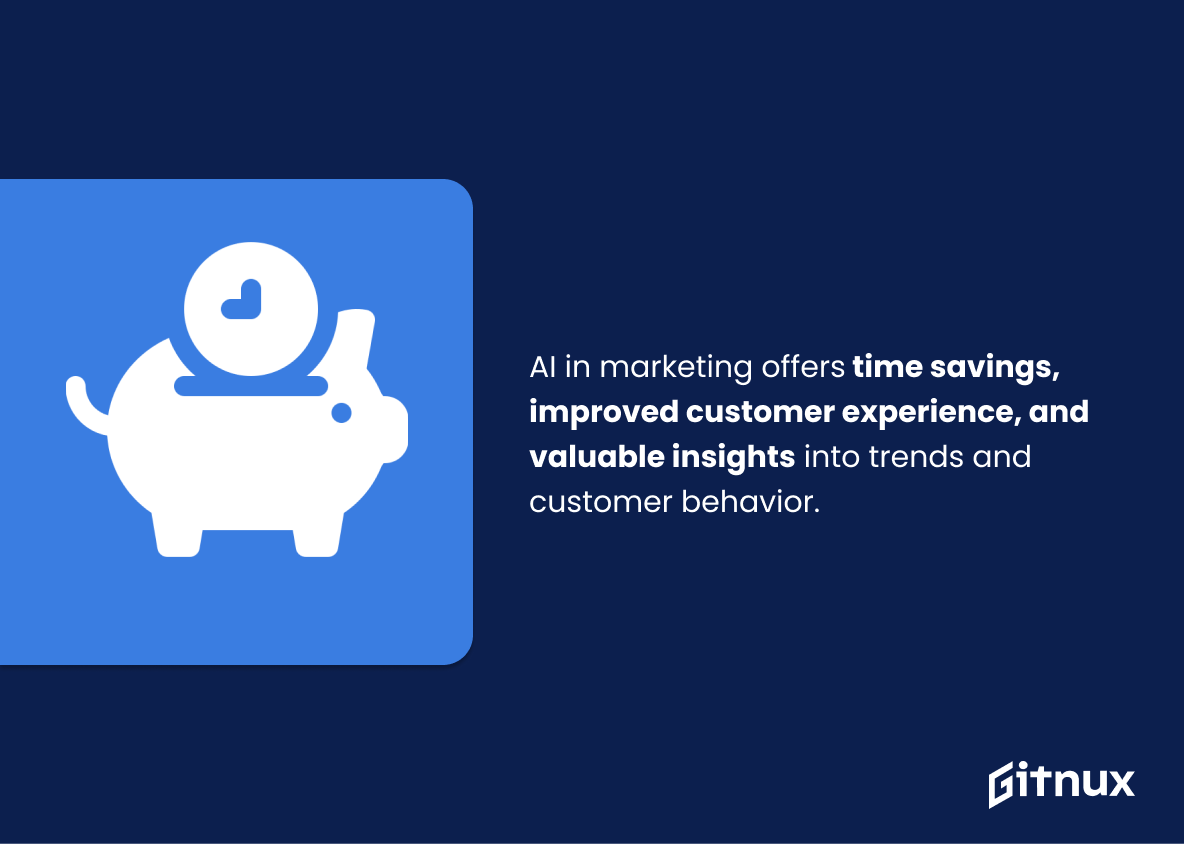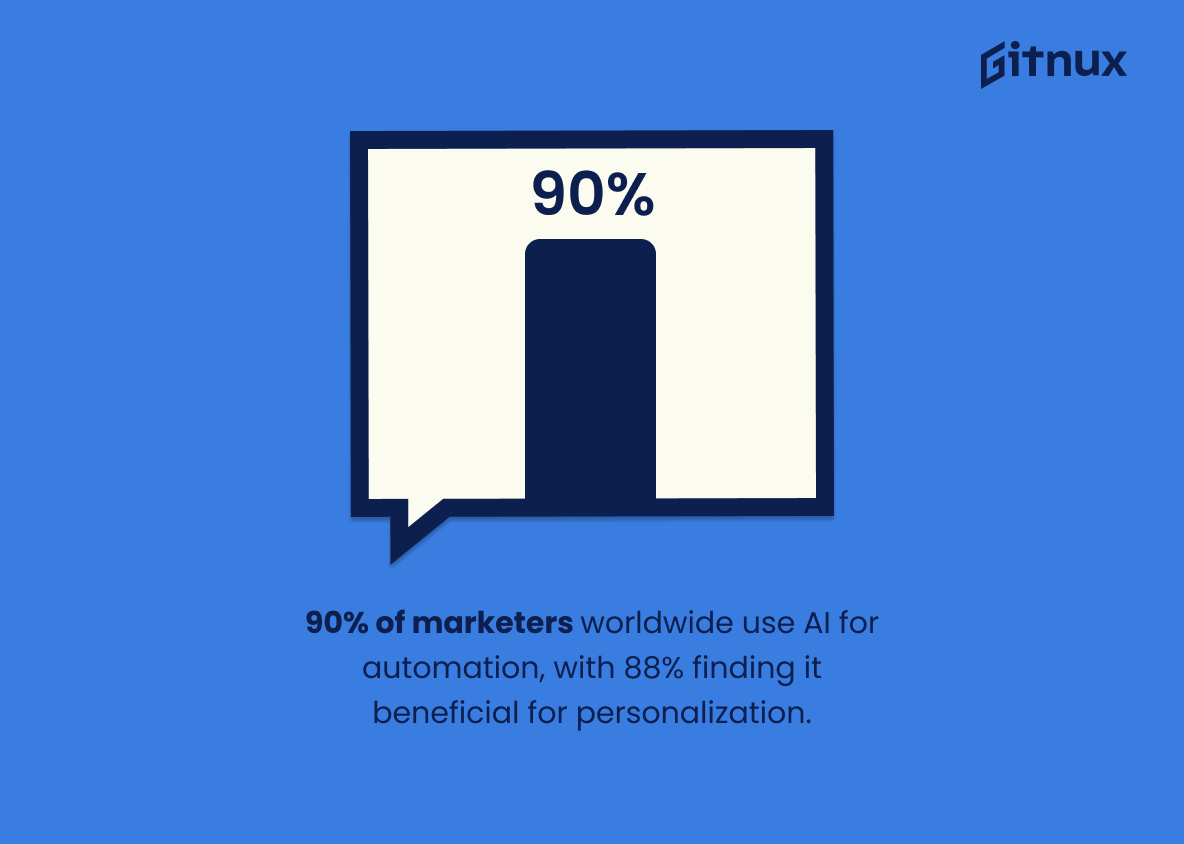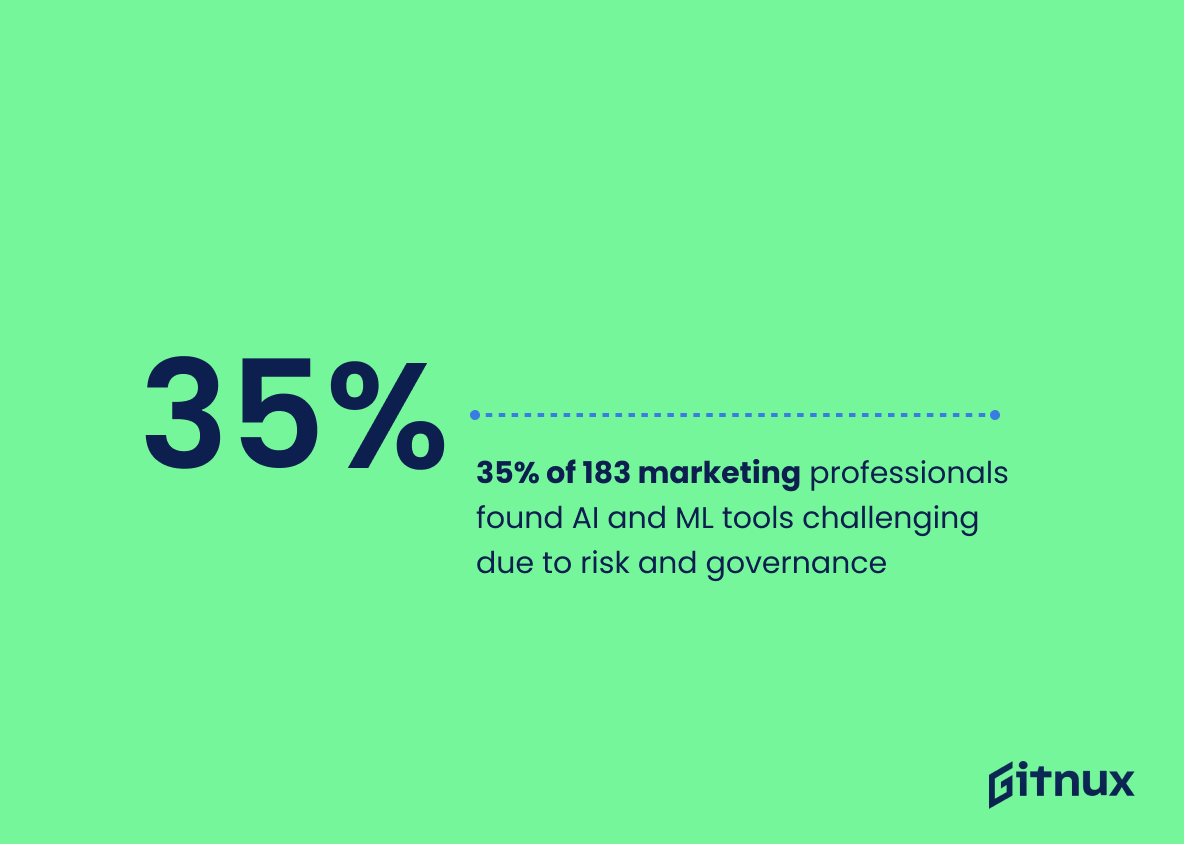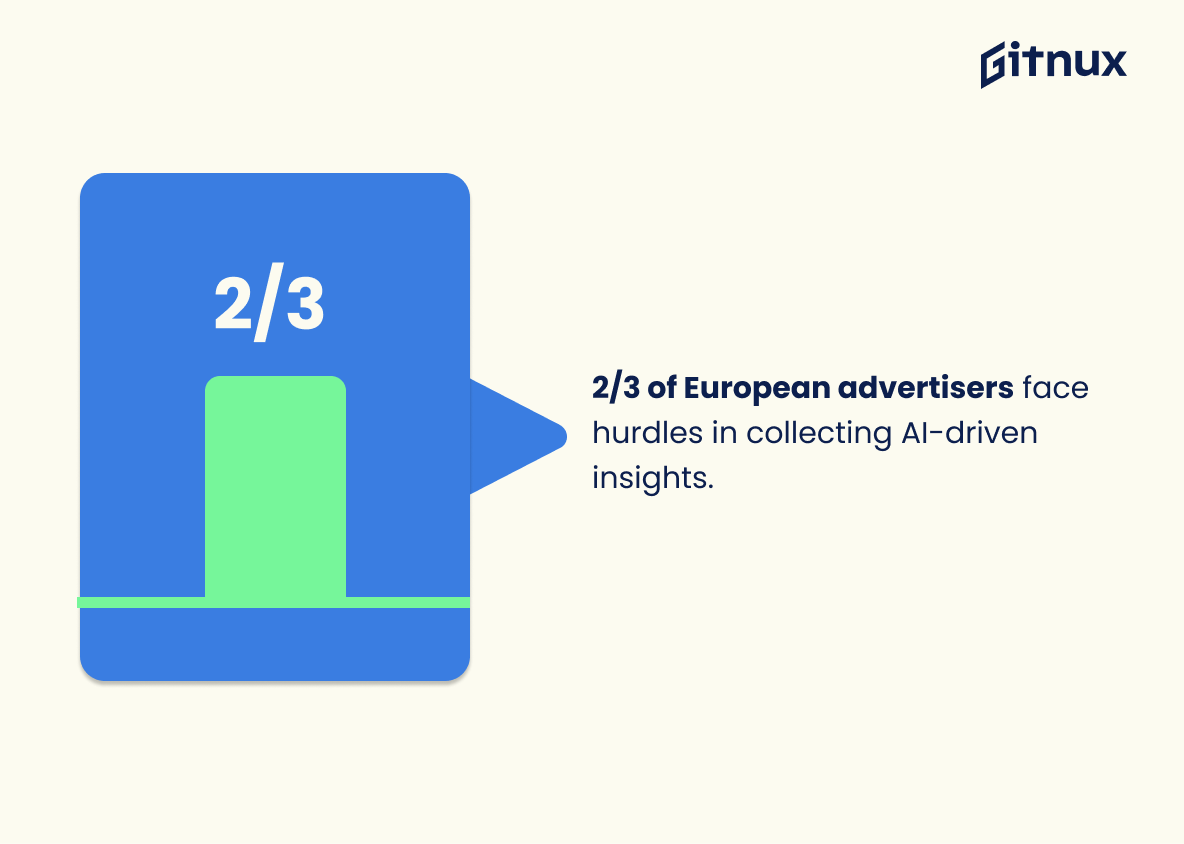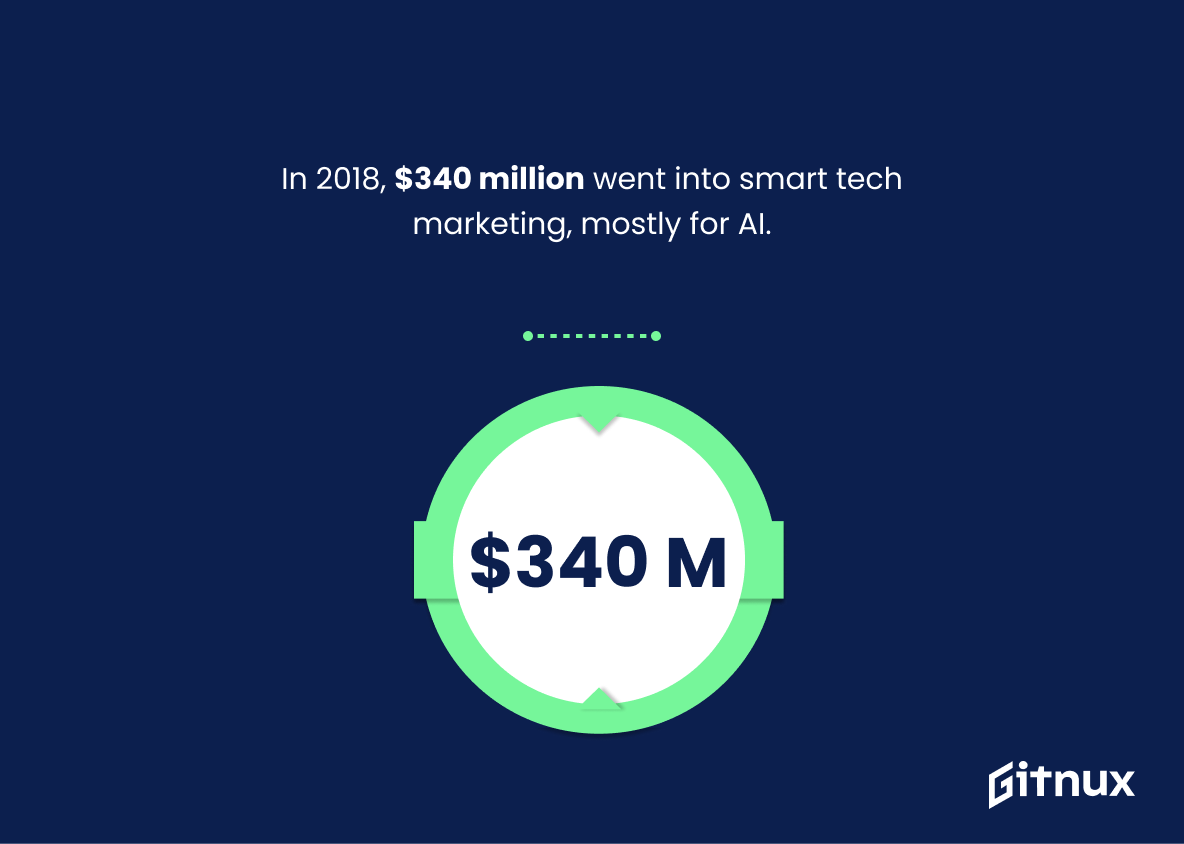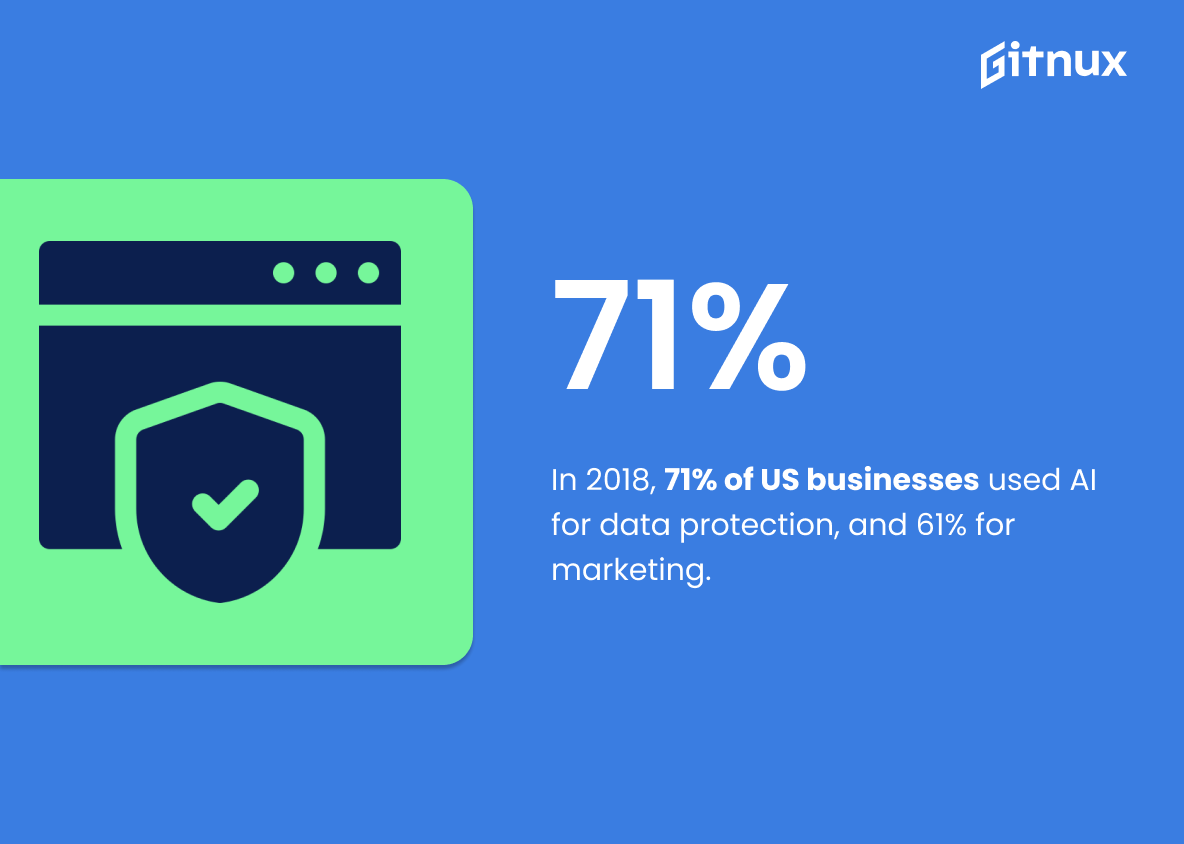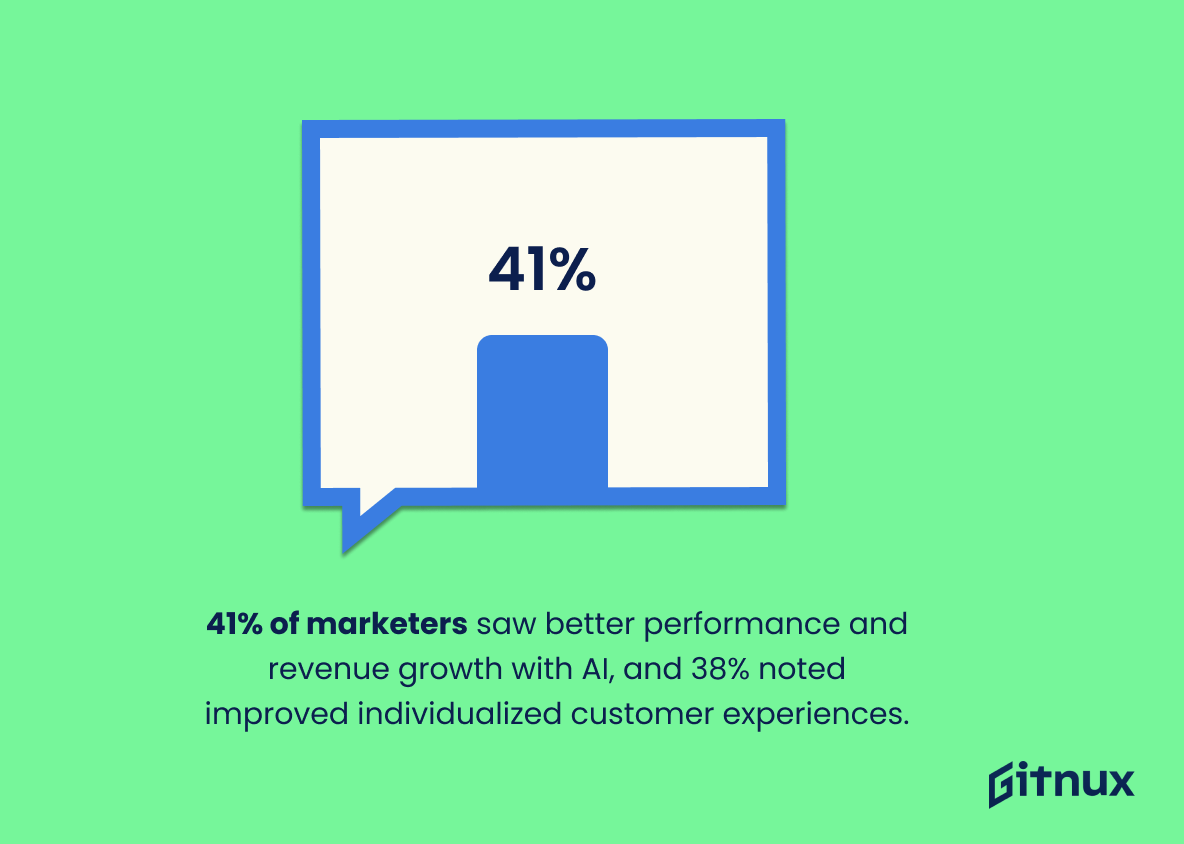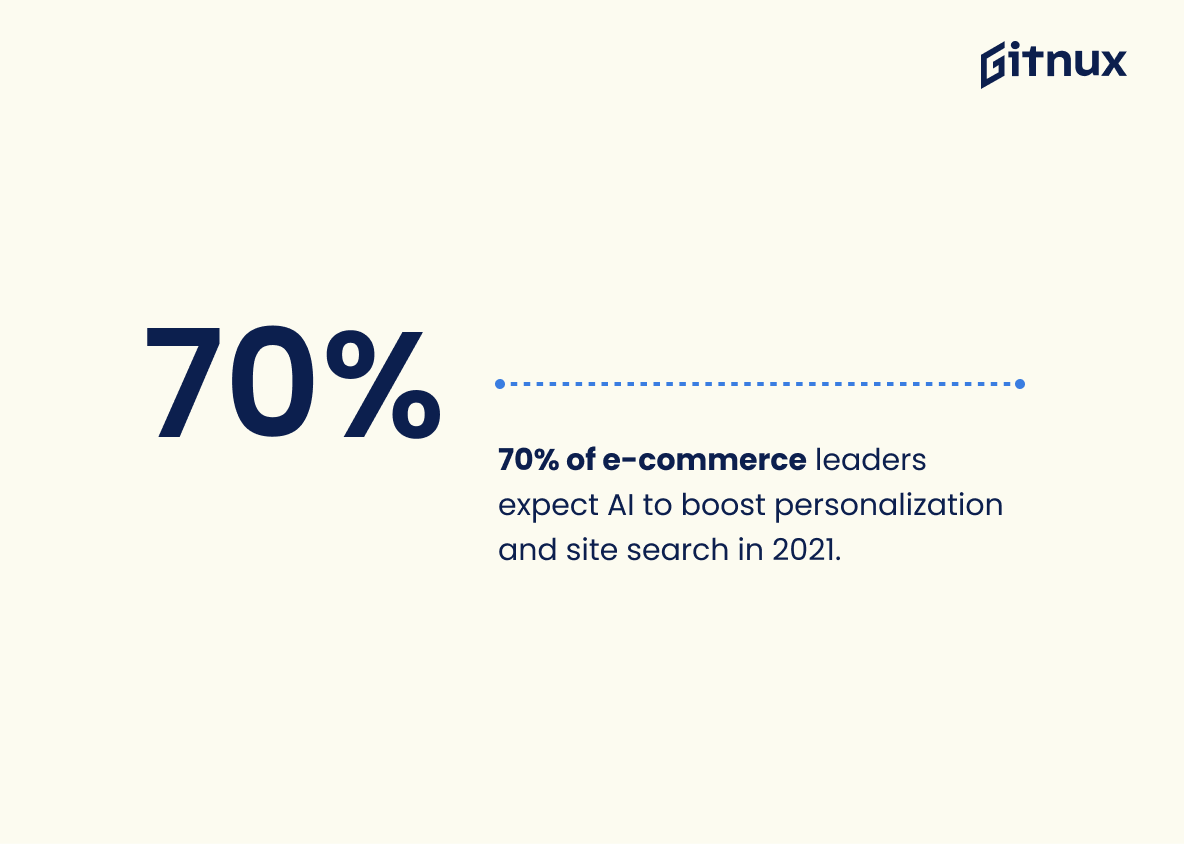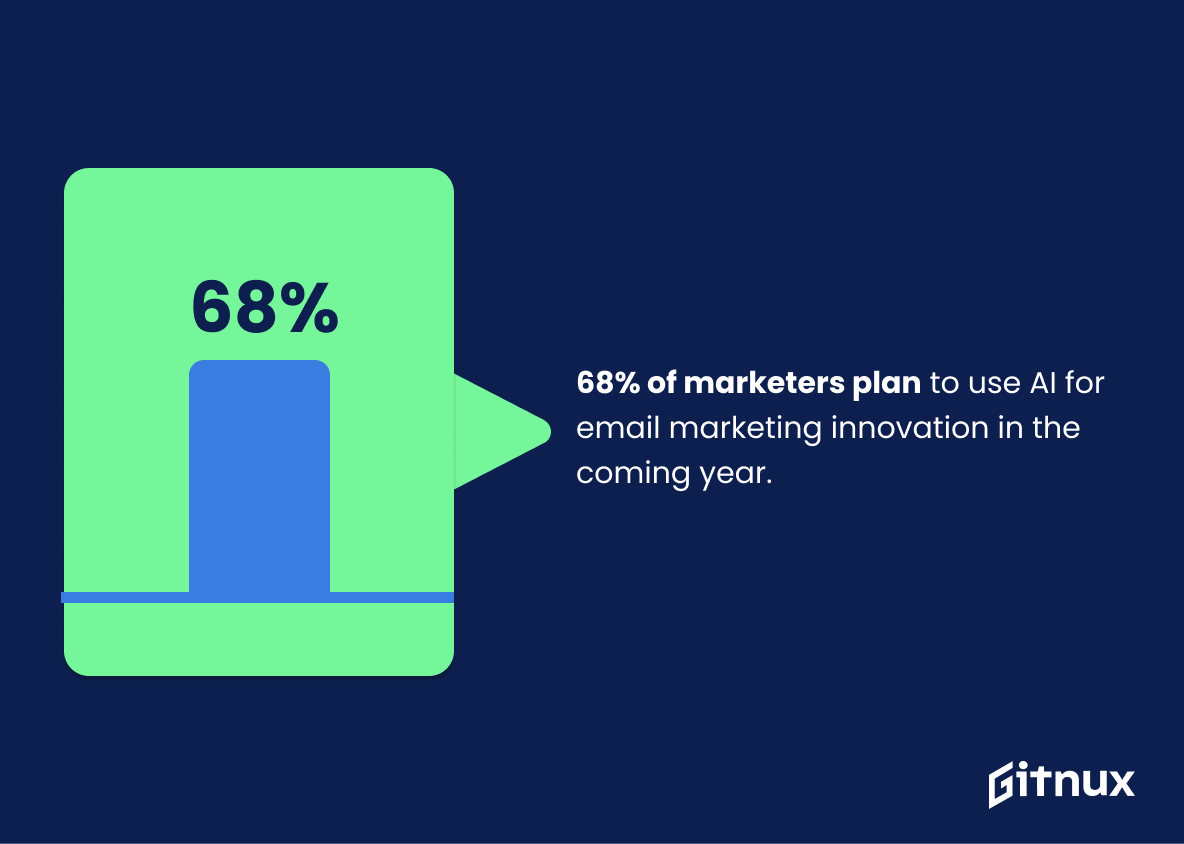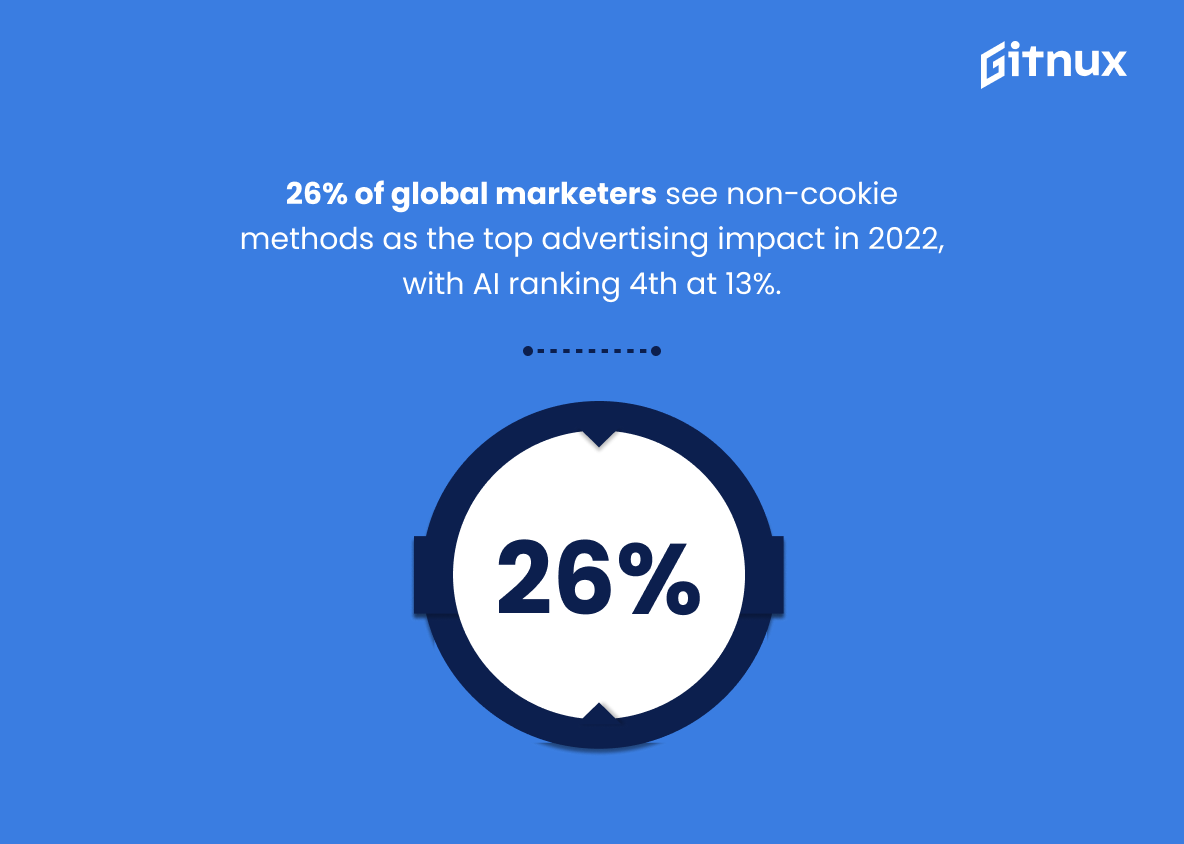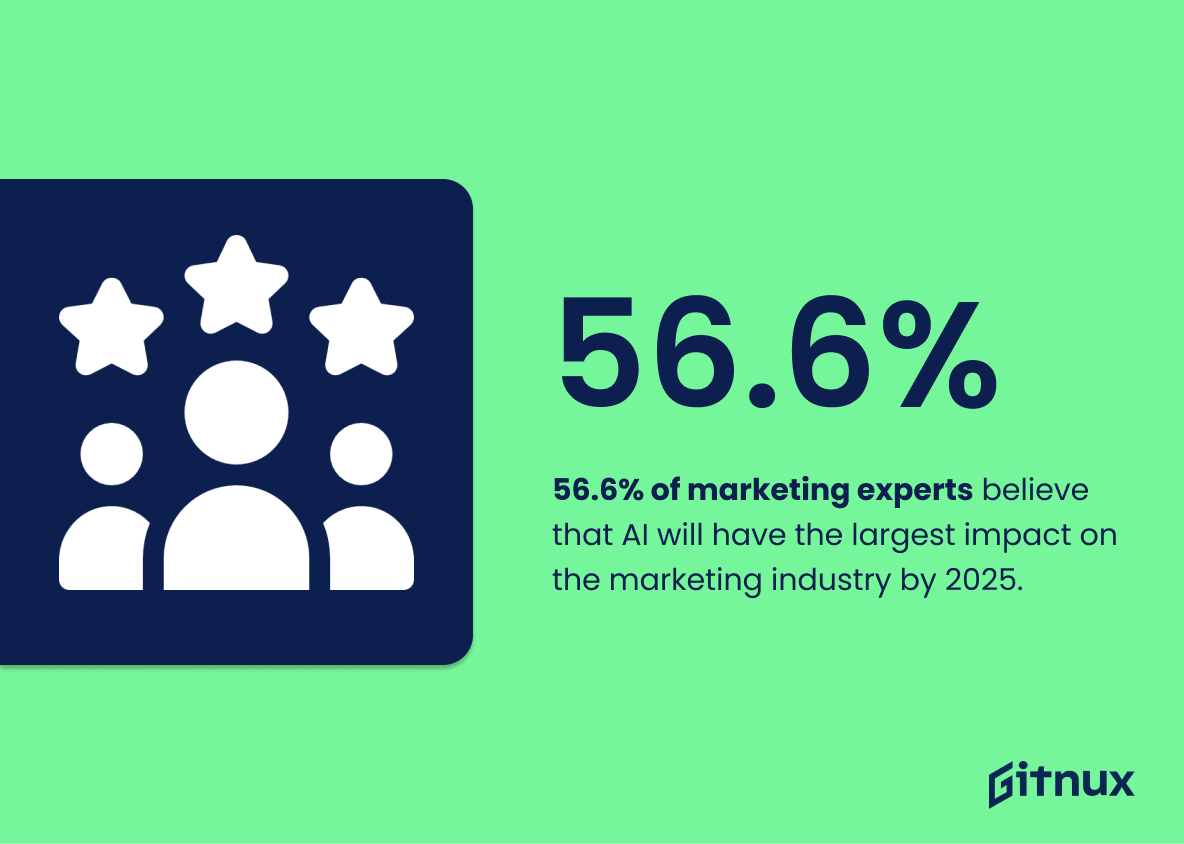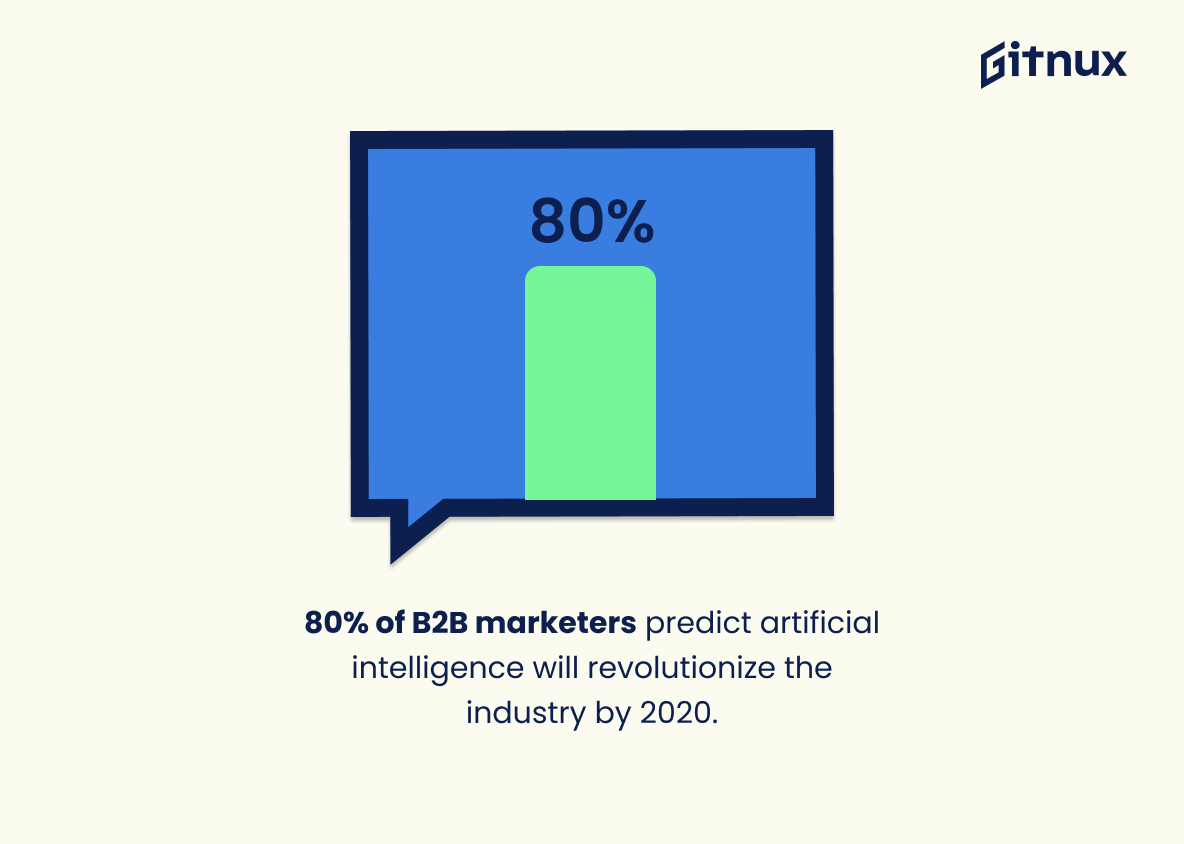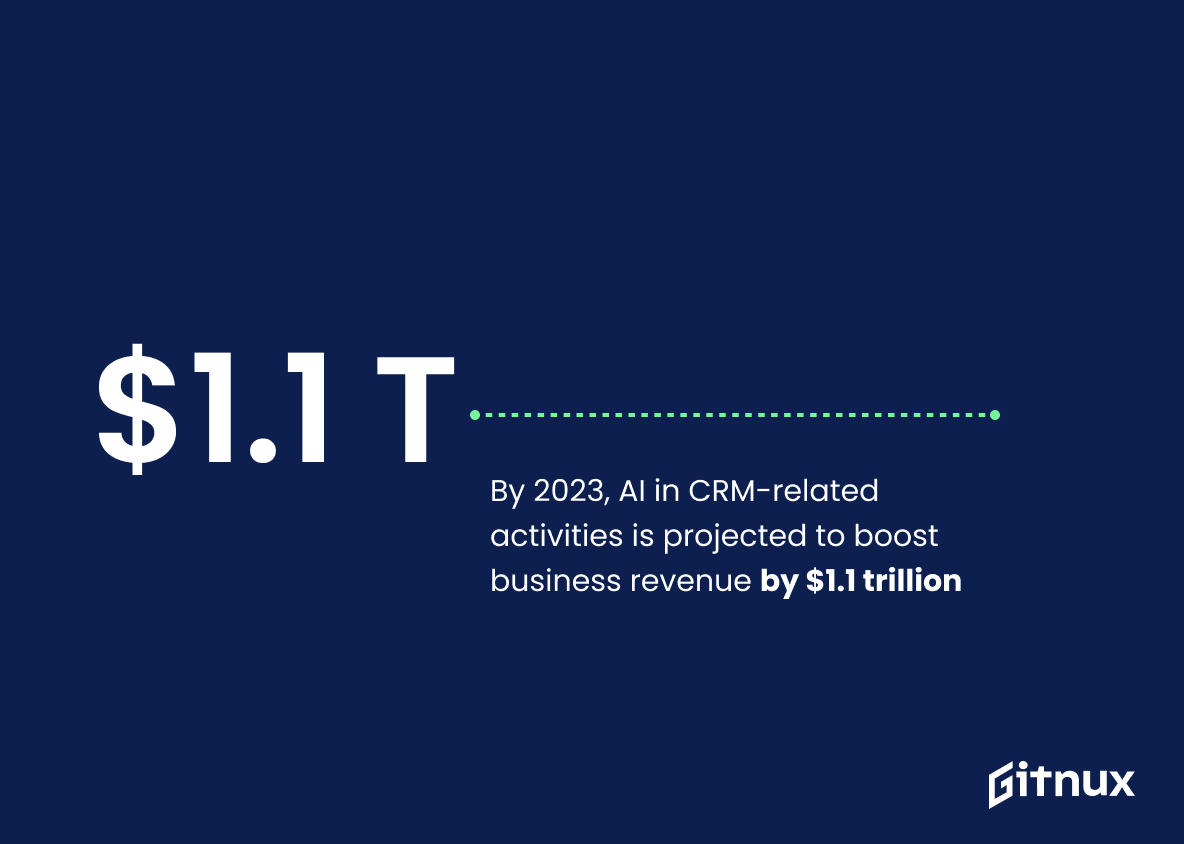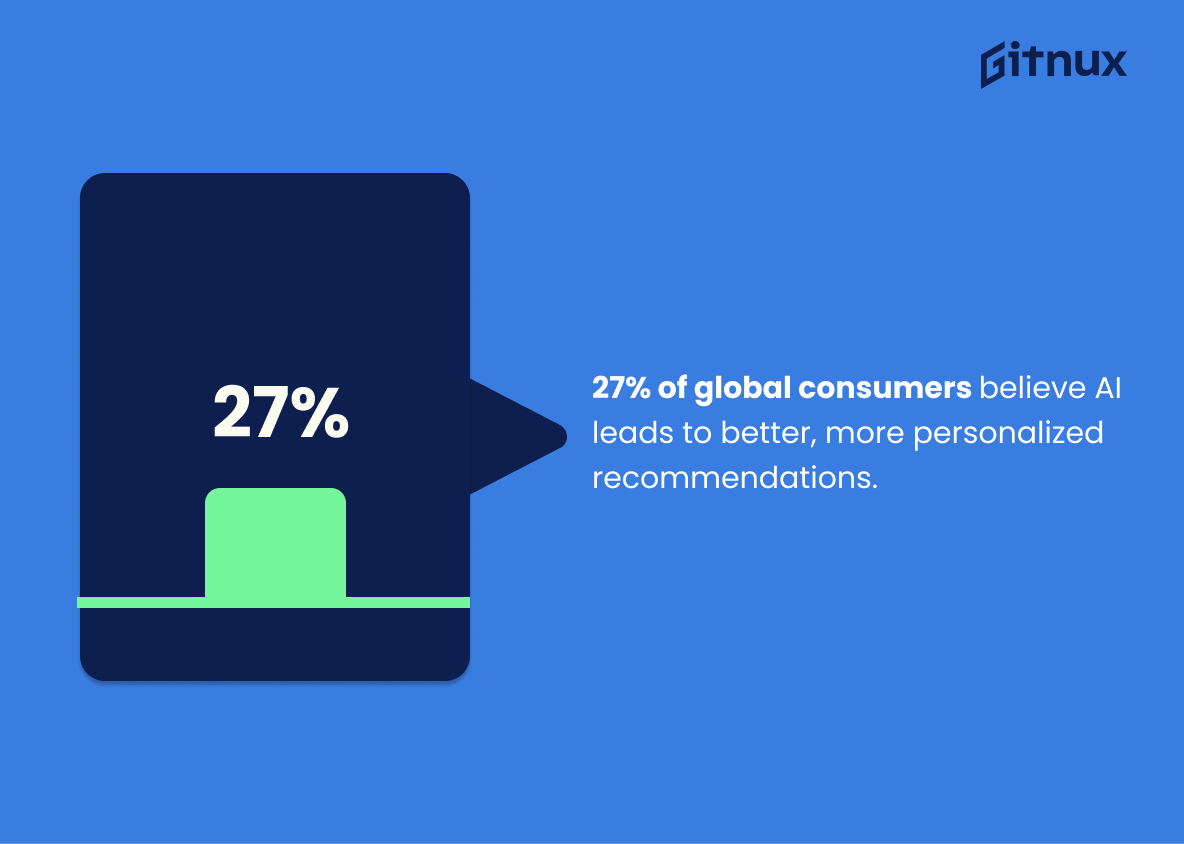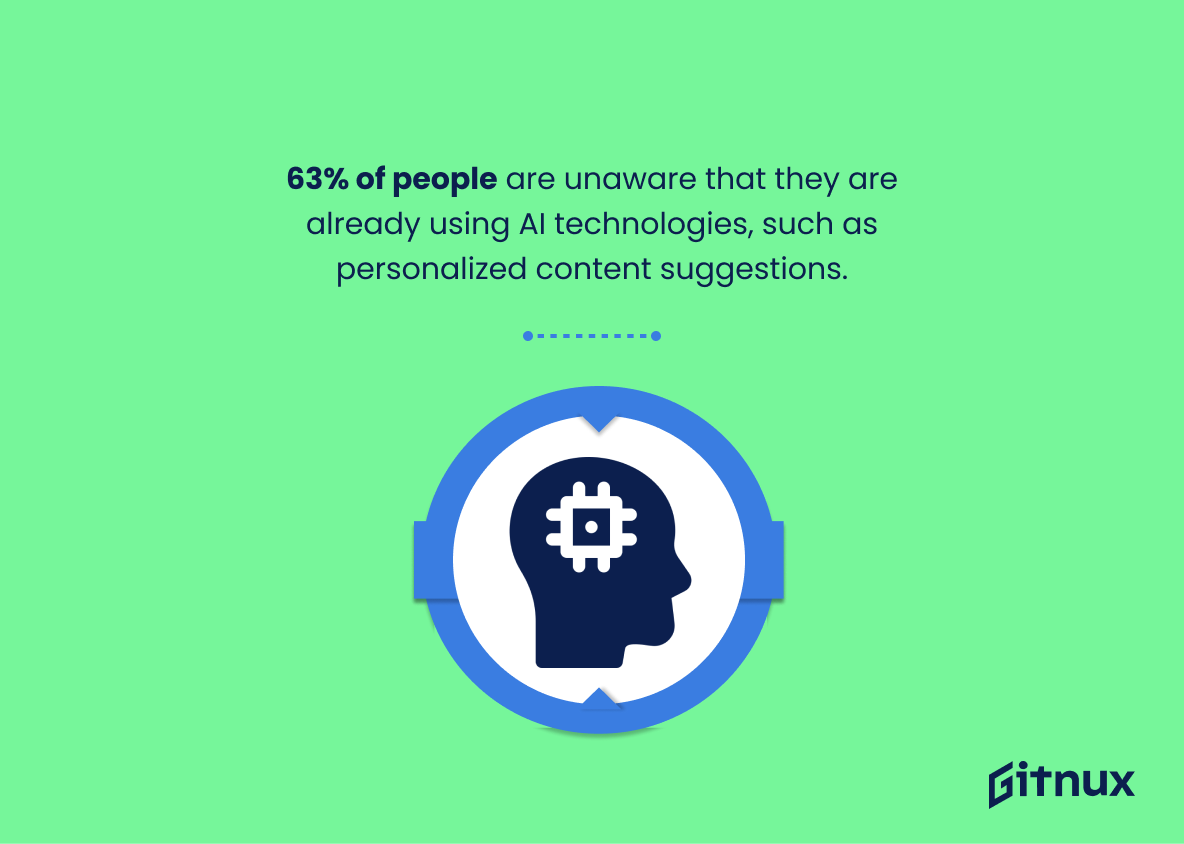Artificial intelligence (AI) has become a major force in the marketing world. AI-driven marketing analytics are transforming the way businesses measure and analyze their marketing efforts, providing insights that can help them make better decisions and drive more effective campaigns.
In this blog post, we’ll take a look at some of the most interesting AI in marketing statistics, and explore how AI is helping businesses make smarter decisions and optimize their marketing strategies.
AI in Marketing: Statistics Overview
The primary advantages of utilizing AI in marketing are time savings and improved customer experience, as well as better insights into trends, audience preferences, and customer behavior.
This provides a clear understanding of the benefits of using AI in marketing, which can be used to inform decisions about whether or not to invest in AI-based marketing strategies.
This data can also be used to inform the development of AI-based marketing strategies, as well as to measure the effectiveness of those strategies.
90% of marketing professionals in 35 countries were utilizing AI tools to automate customer interactions and 88% found it beneficial in personalizing the customer journey across channels.
This shows the increasing use of AI in marketing and the positive impact it has on customer interactions and personalization. It also indicates that AI is becoming increasingly important in the marketing industry, as more professionals are utilizing it to improve customer experiences.
35% of 183 professionals working in marketing-related activities found AI and machine learning tools in marketing challenging due to risk and governance issues.
There are significant challenges in using and deploying AI and ML in marketing departments.
Two thirds of European advertisers found collecting reliable insights into what drove business outcomes to be the biggest hurdle when adopting AI and automation in advertising.
This highlights the difficulty that marketers face when trying to adopt AI and automation in their marketing strategies. It shows that marketers need to be able to collect reliable insights into what drives business outcomes in order to be successful with AI and automation.
This is important because it helps marketers understand the challenges they face when trying to use AI and automation and how to overcome them.
In 2018, 340 million dollars were spent on marketing for smart technology, with the majority of the budget being allocated to artificial intelligence.
This shows the increasing importance of AI in marketing and the amount of money being spent to promote it.
71% of US businesses surveyed were using AI applications for data protection in 2018, while 61% were using AI in marketing.
This statistic matters in the context of AI in marketing statistics because it shows that although AI is becoming increasingly popular in many areas of business, marketing is not one of them.
This suggests that companies may be missing out on potential opportunities to leverage AI in their marketing efforts.
41% of international marketers experienced enhanced performance and a rise in revenue growth as a result of using AI in their marketing operations, and 38% said that using AI in marketing helped to create individualized customer experiences.
AI is an effective tool for improving marketing performance and creating better customer experiences. This indicates that AI can be a valuable asset for marketers, and that investing in AI can lead to tangible benefits.
70% of North American and European e-commerce decision-makers believe AI will aid personalization and facilitate site searches in 2021.
The majority of e-commerce decision makers believe that AI can have a positive impact on their business. This suggests that AI is becoming increasingly popular in the marketing industry, and that companies are investing in AI technology to improve their operations.
68% of marketers surveyed intend to use AI to innovate their email marketing activities in the year following the survey.
This highlights the growing trend of using AI to innovate marketing activities. AI can be used to automate processes, create more personalized experiences for customers, and increase efficiency. This statistic shows that marketers are recognizing the potential of AI and are taking steps to incorporate it into their marketing strategies.
26% of marketers globally stated that non-cookie approaches, like media mix modeling and federated learning methods, would have the greatest impact on their advertising in 2022. 13% of the respondents agreed that one of the most impactful innovations for marketing was artificial intelligence, placing it in the 4th rank.
Marketers are increasingly turning towards non-cookie approaches for their advertising, and that AI is becoming an increasingly important tool for marketing.
56.6% of marketing experts believe that AI will have the largest impact on the marketing industry by 2025.
The majority of marketing experts recognize the potential of AI to revolutionize the industry in the near future. This statistic is a valuable insight into the future of marketing and provides a glimpse into the potential of AI to shape the industry in the years to come.
80% of B2B marketers predict artificial intelligence will revolutionize the industry by 2020.
The majority of B2B marketers are confident in the transformative power of AI, and are expecting to see significant changes in the industry by 2020. This statistic is an important piece of evidence to include in a blog post about AI in marketing statistics, as it demonstrates the widespread belief in the potential of AI to revolutionize the industry.
By 2023, AI in CRM-related activities is projected to boost business revenue by $1.1 trillion.
This demonstrates the immense value that AI can bring to businesses, with a projected increase in revenue of $1.1 trillion by 2023. This is a clear sign that AI is set to become an integral part of the marketing landscape, and businesses should take advantage of this opportunity to maximize their profits.
27% of global consumers believe AI leads to better, more personalized recommendations.
A significant portion of global consumers recognize the value of AI in providing more personalized recommendations. This suggests that AI-driven marketing strategies can be effective in engaging customers and driving sales. As such, this statistic is an important piece of evidence for marketers looking to leverage AI in their marketing efforts.
63% of people are unaware that they are already using AI technologies, such as personalized content suggestions.
This highlights the need for more education and awareness about the use of AI in marketing, so that people can make informed decisions about their online experiences.
AI-driven email marketing revenue is expected to increase from $290.92 million in 2017 to $479.02 million in 2021.
Technology is becoming increasingly popular and effective, and businesses are investing more in it. This is an important point to make in a blog post about AI in marketing statistics, as it demonstrates the potential of AI to drive growth and profitability.
61% of marketers say that AI is the most important aspect of their data strategy.
The majority of marketers recognize the value of AI in their data strategies, and are investing in it to help them make better decisions and improve their marketing efforts. This statistic is a testament to the growing importance of AI in marketing, and serves as a reminder of the potential it holds for businesses.
Companies using AI for marketing increased by 44% between 2017 and 2018.
This demonstrates the increasing popularity of AI in the marketing world, and the potential it has to revolutionize the industry. This statistic is a valuable piece of information for readers of the blog post, as it provides a tangible example of the impact AI is having on marketing.
The global AI in the marketing market is expected to grow from $6.46 billion in 2018 to $40.09 billion by 2025.
Its growth is expected to be exponential over the next few years. This means that businesses should be taking advantage of AI now to stay ahead of the competition and maximize their marketing efforts. This statistic is a clear sign that AI is the future of marketing, and those who don’t embrace it now may be left behind.
47% of digitally mature organizations have a defined AI strategy in place.
A significant portion of digitally mature organizations have already taken the initiative to develop an AI strategy, demonstrating the potential of AI to revolutionize marketing. This statistic is a clear sign that AI is no longer a passing trend, but a powerful tool that can be used to drive marketing success.
By 2021, 3.5 million salespeople will use AI-powered solutions for lead scoring, forecasting, and guided selling.
AI-powered solutions are becoming increasingly popular among salespeople, allowing them to make more informed decisions and improve their sales performance. This is a clear indication that AI is becoming an integral part of the marketing landscape, and businesses should take advantage of its potential to stay ahead of the competition.
AI technologies are projected to help reduce marketing costs by 30% across industries.
AI can be used to drastically reduce costs, allowing businesses to maximize their profits and reach more customers. This is an important point to make in a blog post about AI in marketing statistics, as it highlights the potential of AI to revolutionize the industry.
95% of marketers believe that AI will improve their ability to personalize user experiences.
Marketers are confident in the ability of AI to help them create more personalized user experiences, which can lead to increased customer engagement and loyalty. This is an important point to make in a blog post about AI in marketing statistics, as it demonstrates the potential of AI to revolutionize the way marketers interact with their customers.
Approximately 85% of customer interactions will be managed with AI by 2025.
AI will become an increasingly important part of customer interactions in the near future, and that businesses should start preparing for this shift now. It also highlights the potential of AI to revolutionize the way businesses interact with their customers, allowing them to provide more personalized and efficient customer service.
1 in 5 consumers believes their social media usage would improve with AI-driven personalized content.
A significant portion of consumers are open to the idea of AI-driven content, and that they believe it could improve their social media experience. This suggests that AI-driven personalized content could be a valuable tool for marketers to engage with their target audience and create more meaningful connections.
55% of marketers are excited about the potential of AI chatbots for customer service.
Marketers are recognizing the potential of AI chatbots to revolutionize customer service, and are eager to explore the possibilities. This statistic is an important indicator of the direction of the marketing industry, and provides valuable insight into the current state of the field.
Companies embracing AI for content generation are expected to generate up to $2 billion in revenue by 2022.
Companies who are investing in AI for content generation are likely to reap significant rewards in the near future. This is an important point to consider for any business looking to leverage AI in their marketing strategy, as it demonstrates the potential for significant returns on investment.
Conclusion
In conclusion, AI in marketing is a powerful tool that can help businesses gain a competitive edge in the marketplace. AI can help marketers better understand their customers, target their campaigns more effectively, and optimize their marketing efforts.
AI can also help marketers reduce costs, improve customer experience, and increase ROI. AI is quickly becoming an essential part of the modern marketing landscape, and businesses that don’t take advantage of it risk being left behind.
References
1 – https://www.statista.com/statistics/1364767/ai-ml-usage-company-benefits-us/?locale=en
2 – https://www.statista.com/statistics/1365066/ai-usage-marketing/?locale=en
3 – https://www.statista.com/statistics/1364821/ai-ml-usage-company-challenges-us/
4 – https://www.statista.com/statistics/880695/ai-challenges-in-digital-advertising-in-europe/
5 – https://www.statista.com/statistics/964268/smart-technology-marketing-spend-us-by-technology/
6 – https://www.statista.com/statistics/917766/united-states-artificial-intelligence-application-use/
7 – https://www.statista.com/statistics/962630/impact-of-ai-enabled-marketing-on-business-outcomes-worldwide/
8 – https://www.statista.com/statistics/1175063/ai-help-business-ecommerce-companies-worldwide/
9 – https://www.statista.com/statistics/710321/email-marketing-innovation-intentions-uk/
10 – https://www.statista.com/statistics/1316301/most-impactful-marketing-technology-innovations/
11 – https://www.adroitmarketresearch.com
12 – https://blog.globalwebindex.com
13 – https://www.adobe.com
14 – https://www.salesforce.com
15 – https://www.gartner.com
16 – https://www.statista.com
17 – https://www.socialmediatoday.com
18 – https://www.financedigest.com
19 – https://www.smartinsights.com
20 – https://www.econsultancy.com
21 – https://medium.com
22 – https://www.hubspot.com
23 – https://kinsta.com
24 – https://www.pwc.com
ZipDo, cited June 2023: Ai In Marketing Statistics
